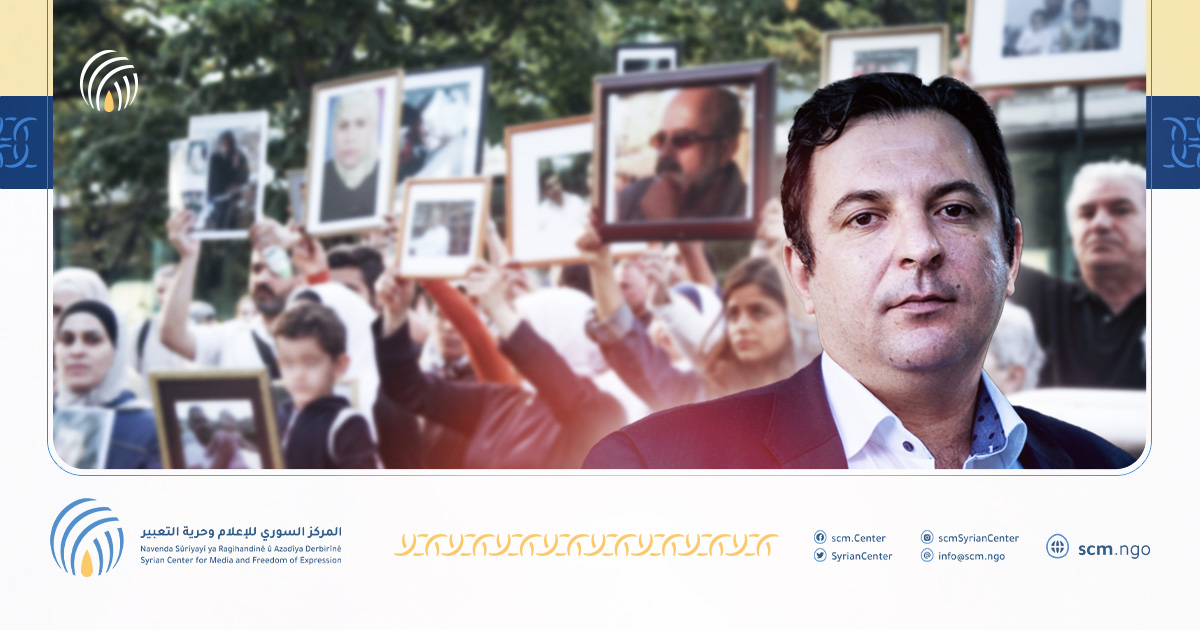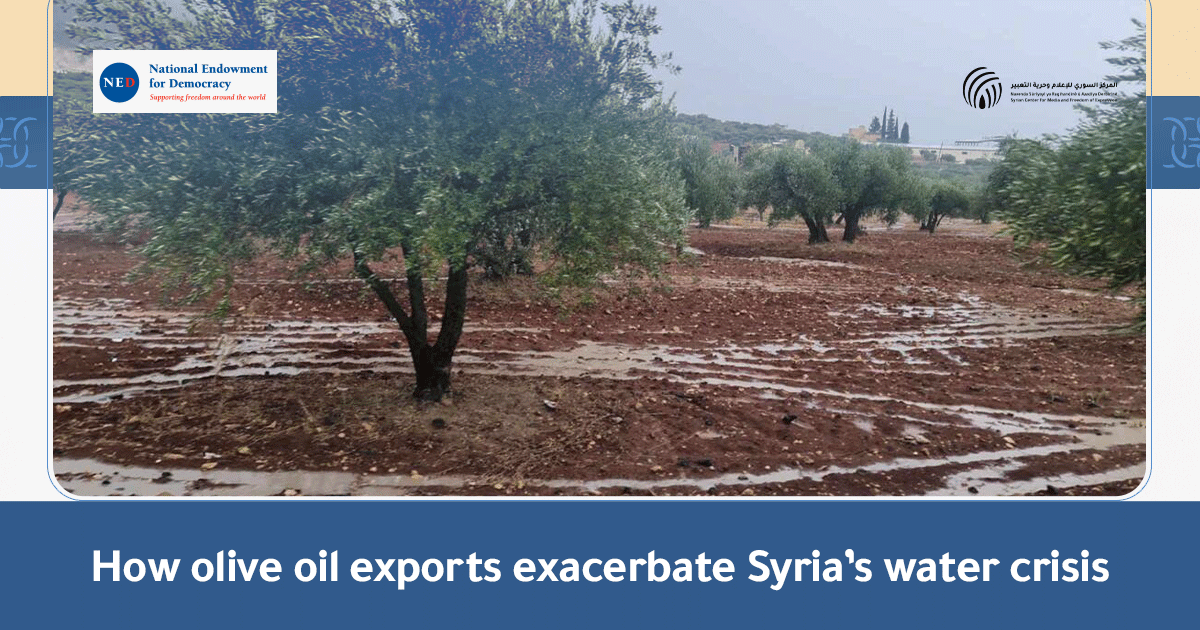Devoured by a Ferocious Beast in the Desert
In the late 1980s and early 1990s, I was still a young boy, tentatively approaching adolescence, while Syrian society was attempting to emerge from another decade of turbulence and internal and regional crises, which culminated in the massacre of Hama, Rifaat al-Assad’s rebellion – Hafez al-Assad’s half-brother – and the fight in and against Lebanon, as well as many other events that were present on a daily basis in our home and in our small socially isolated community – an isolation that resulted from our family being marked as opponents to the regime which limited our social circle to people like us. People such as our neighbors on the sixth story of the journalists’ building on Damascus’ Mezzeh highway, where we lived on the seventh floor. Military Security had stormed their home years before and detained the head of the household, R. Darkel, on charges of managing the Muslim Brotherhood’s finances in Syria, and the family learned informally more than a year later that he had been executed in the infamous Tadmur (Palmyra) prison.
In truth, this story at the time was not an exceptional event for me, as my whole world revolved around arrests, prison visits, news about the disappeared and executions, and a lot of news about an upcoming amnesty, perhaps on the occasion of Eid or as a result of political shifts.
The extraordinary incident was the appearance of A. Darkel, the son of our neighbor, at our house one evening, waving his father’s death certificate around, while exclaiming “free at last.” I soon realized why his tone was mixed with delight and grief, because without this death certificate, his family members were unable to complete many personal and financial procedures that influenced their daily life. What really surprised me however was the cause of death indicated on the certificate, which was “devoured by a ferocious beast in the desert while on a hunting trip”
This death certificate required R. Darkel’s family to pay $8,000 at the time to a senior security officer after much trouble and mediation. A few years later, we had to go through the same process to find out where my mother was detained in the Palestine Branch after she disappeared while crossing the Syrian border from Beirut.
With the onset of the Syrian revolution in 2011, I, like hundreds of thousands of other Syrian men and women, experienced imprisonment, torture, and enforced disappearance on three separate occasions, and I was transferred between seven secrete prisons and three official prisons over the years. On this time of year on Eid al-Adha in 2012, I nearly became one of the faces in the “Caesar photos,” but fate had other plans for me, and I was released three years later.
One of the factors that contributed to my survival and subsequently to my release was information relayed to my family by one of the released detainees; that I was alive in a secret detention center on the outskirts of Damascus belonging to the 4th Armored Division. During my years in detention, I shared my fate with hundreds of forcibly disappeared detainees, and the biggest wish and hope we all had was to be transferred to an official civilian prison because we saw that ending our status as forcibly disappeared people was the equivalent of returning to life after death. However, a question lingered in my mind: is freedom after brutal torture and mistreatment a return to life? Will this still be the same life I’ve always led?
After being brought twice before the terrorism court and released each time, I fled Syria in search of life. DW TV’s “A Guest With a Story” producers contacted me for an exclusive interview in a former state security (Stasi) detention facility for the former GDR a few months after I moved to Berlin in the early summer of 2016. It was suggested that I find a different location for the interview, but I liked the idea and convinced myself that I could handle it. The fact that the show’s host, Samah Al-Taweel, is the daughter of a former detainee and that I knew her when I was a university student gave me even more peace of mind.
Later in the interview, the director suggested we go to the basement of the building where the torture cells and solitary confinement areas were located. Upon entering the Stasi detention center, I knew I had made a mistake, but I was too proud to admit it. Nevertheless, my constant smile wasn’t capable of hiding my inner turmoil and anxiety.
The air was heavy as if saturated with lead in the basement underground, and I stood in front of the cells with their doors open, and at one point I couldn’t hear or feel the voices of my interlocutors. I saw my friends inside the cells: Yahya al-Shurbaji, Khalil Ma’touq, Razan Zaitouneh, Ayham Ghazzoul, Nazem Hammadi, Wael Hamada, and the list goes on and on…
They were all there, reaching out their hands, their faces dim but their eyes bright. I was about to enter one of the cells to get them out when someone grabbed my arm and pulled me back, Samah’s face was pale and featureless, and the program’s director whispered to me with my father’s affectionate tone when his arms are around me: “It’s better to go out for an outdoor break.” I returned my gaze to the cells, which were now empty and cold.
I couldn’t speak so I walked with them as if I were floating in space and we never returned to the cells. My loved ones’ fate is unknown, as is the fate of tens of thousands, if not hundreds of thousands, of Syrians. A portion of our lives are still unknown. Uncertainty harms our souls, making any moments of well-deserved happiness seem like a luxury to be ashamed of, and a never-ending sense of guilt for simply surviving.
Delegates from around the world will travel to the General Assembly Hall in a few hours to vote on a resolution to establish an independent institution to investigate the fate of the missing in Syria, after being led there by the extraordinary efforts of the families of the missing and their associations. Mothers, wives, and sisters who went to great lengths to obtain their right to know, the truth, and to get answers.
Sir, Madam Representative of your State Member of the United Nations:
When you are in that room and choose to press the with, against, or even abstain button, you are not only exercising your country’s sovereign right to vote and participate in decision-making – it is true that political calculations are a part of your presence in that room – but remember that when you choose the button you press, you are recording a moral stance for history to judge that is separate from political calculations and balances.
In front of millions of victims, you choose to give hundreds of thousands of missing persons’ families hope and a practical step toward learning the fate of their loved ones. You can participate in either opening the door to long-term peace in Syria or closing it for decades. You decide whether we, as humans, deserve human dignity or whether you will leave tens of thousands to be devoured by a ferocious beast in the desert.





